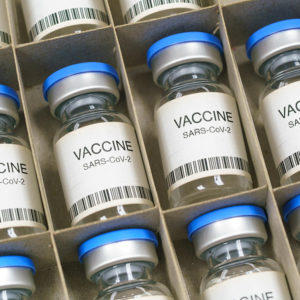Fifteen months into the greatest public health crisis in a century, innovators have produced 13 approved COVID-19 vaccines – a stunning achievement. Leading the way are vaccines developed in democratic nations by innovative companies.
We shouldn’t take this feat for granted. It’s a striking affirmation of the innovative capacity of democratic societies and the intellectual property rights that support innovation and creativity.
And yet, U.S. leaders have embraced a proposal to undercut American creators and innovators. Over 100 members of Congress endorsed a proposal by South Africa and India at the World Trade Organization to suspend intellectual property rights related to COVID research and treatments.
They probably want to signal concern for vaccine access in poor countries – a noble and worthwhile goal – but they are misguided.
The proposal is aimed at far more than vaccine access. It covers most IP rights, allowing countries to suspend protection of copyrights, trade secrets, know-how, industrial designs, and patents.
For example, a coalition of museums, libraries, and activists want to use the waiver to “issue urgent edicts” to suspend copyright. Countries proposing the waiver also advocate removing copyright protection of software for medical devices.
There is no evidence that copyright has created barriers to COVID research. Rather, major publishers such as Elsevier have not only opened their libraries but have created free information resources for COVID research, including putting rights in place for research reuse and secondary analysis.
Proponents of the waiver have another, even bigger target in mind. They want forced technology transfer on a global scale.
As recent challenges show, manufacturing vaccines is tough. mRNA-based vaccines are cutting edge, and Pfizer, Moderna, and their partners engineered manufacturing techniques and supply chains from scratch.
They have shared this knowledge voluntarily, relying on IP protection to work with chosen partners. IP rights give them the security to work with others, even rivals. For example, both Pfizer and Johnson & Johnson have teamed up with Merck to produce more doses.
But proponents of the WTO waiver dismiss voluntary cooperation. The waiver would allow countries, including China, to compel innovators to deliver their technology to competitors and teach them its use without IP protection.
Coerced technology transfer is precisely what has underpinned so much of the U.S. government’s frustration with China. Yet, this waiver would legitimize and escalate this practice on an unprecedented scale to China and 157 other countries. Worse, it would last until the world reaches herd immunity which could be never,
The IP waiver is the latest attack in a decades-long campaign against the grand bargain underlying the WTO. When the WTO was founded in 1995, the U.S. and other countries prioritized and successfully negotiated protections for IP rights. They recognized that lowering trade barriers without effective IP protection would allow trading partners to copy, rather than import, U.S. products.
While the IP-trade bargain is good for the U.S., many WTO members have long opposed it. The COVID waiver is just the latest of many proposals. Some opposition is motivated by a desire to get medicines and other necessities more cheaply, but much is driven by self-interest as countries such as China seek benefit their own industries.
Unfortunately, U.S. leaders have blundered into this ongoing battle and sided against U.S. businesses and workers. The COVID waiver would mark a turning point in this decades-long argument, providing broad discretion for other governments to disregard U.S. IP rights.
Today IP-intensive industries account for 45 million U.S. jobs, over 38 percent of U.S. GDP, and more than 50 percent of U.S. merchandise exports, according to the U.S. Commerce Department. This would be put at risk by the waiver.
The waiver would not only set a dangerous precedent it’s also unnecessary.
Coerced technology transfer would be hugely counter-productive, distracting vaccine producers with legal fights and intrusions into their business. Instead, governments should continue to facilitate voluntary collaboration as the Biden administration wisely has done.
It is both right and smart for the U.S. to work with the rest of the world. The U.S. government and private sector are contributing to global partnerships to deliver vaccines and diagnostics to the world. As soon as possible, the U.S., Canada, Europe, and even India, should move beyond vaccinating their own people and share excess capacity with the world.
U.S. leaders must not help to undermine the very innovation that promises to end this global crisis and that we will rely on during the next one. They must recognize that upending IP protections including copyright would be damaging to US economic leadership, and would not help get vaccines to people any quicker.

